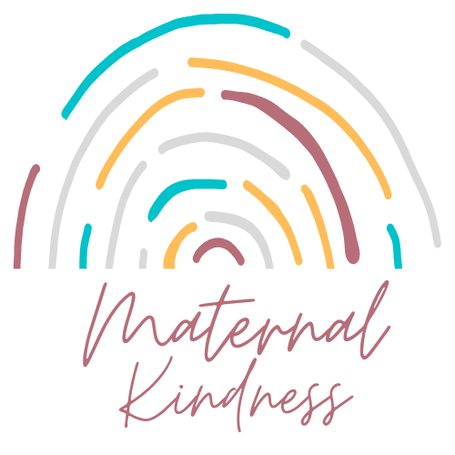
Blog #3 | Let's talk about birth trauma and PTSD
11 December 2020
Until earlier this year I had never heard of the term ‘birth trauma’ however back in 2013, I did suffer from a traumatic birth which led to me being at home with my new baby girl recovering from an ‘eventful’ episiotomy and forceps delivery all alone, all day and sometimes night (as my ex-husband worked shifts), with little support from family or friends.
I was REALLY struggling with breastfeeding too and just kept being told ‘just read a leaflet’, ‘you’re being silly’ or ‘it gets easier’ which of course it didn’t – I ended up with a fever in A&E with mastitis. Not knowing what the heck was going on with my body - milking and bleeding - which nobody had warned me about, I was feeling judged by the other mums in my postnatal group as I was only one of two mums formula feeding - so I was already failing at motherhood and feeling so low… so emotional… so isolated… totally disinterested in life… constantly worrying about money (as I’d been made redundant the same week I found out I was pregnant) and feeling pressured to go back to work asap to be the main bread winner again... I hated my husband for it and I hated myself for hating him. I wondered what on earth was wrong with me as this was supposed to be the happiest time in my life.
But the love I had for my sweet little baby girl felt amazing and ‘I knew’ I couldn’t have postnatal depression (PND) as I was soooooo in love with her and PND is when you can’t bond with the baby right??!
Ultimately, how I was feeling led to me getting divorced when my daughter was 3. I concluded I must have been suffering from an undiagnosed PND because I did and said things during that time in my life where I simply don’t recognise who that person was. I’ve carried a lot of regret and sadness and guilt for becoming that person and never dealt with any of it.
Fast forward to December 2020, my new fiancé and I were pregnant again having suffered a missed miscarriage in 2019. My anxiety and depression were on another level as I lay in bed crying day after day feeling completely scared and frightened of what could happen again with this baby. I had become so low that I self-referred to see a counsellor as I knew I needed help but unsure of what that help looked like. After three months of waiting, I finally managed to get referred to a perinatal counsellor who acknowledged that my anxiety and low mood were triggered by my previous miscarriage – but we also uncovered (to my amazement) my phobia of birth – known as Tokophobia – all linking back to my daughter’s birth in 2013 and something I’d never revisited. Not only was I worried about keeping a healthy growing baby inside me, but how the heck would I deliver another baby safely, knowing what happened to me last time.
Suddenly, a lot of things in my head started to make sense; the fear… the trauma… the low moods after her birth… the pressure and overwhelming feeling of having to be a good mum and wife… it wasn’t all just in my head – nor was it ‘just the norm’ – what I’d experienced wasn’t even postnatal depression, it was all a reaction to my birth trauma.
What is birth trauma?
A perinatal event becomes traumatic when someone feels very afraid for their life or for the life of someone close to them (in my case it was my baby) and is also a form of Post-Traumatic Stress Disorder (PTSD). With the rise of the internet, Instagram posts and bloggers’ real-life experiences of birth trauma, suddenly there is an army of women sharing their birth stories, symptoms and really helping women to recognise what they have experienced.
It is essential that women can begin the process of understanding their experience of birth, in order to recover from it and it begins with knowledge and understanding of what happens to us when we experience difficult, life-threatening (perceived or real) or frightening events.
And it’s not just birth trauma, other forms of perinatal trauma such as IVF journeys, miscarriages, stillbirths, unplanned pregnancies, difficult breastfeeding experiences, and sleep deprivation are just as prevalent and remain taboo. Yet culturally, there is so much silence around these experiences but none the less have a devastating impact on those experiencing these events.
Despite these all being fairly common, women tend to stay silent about their suffering and the taboo continues. The silence is extremely isolating and can lead to more serious problems that impact on other parts of a woman’s parenting journey, not to mention the impact on their sense of self.
It’s only when we understand more clearly what trauma symptoms are and how they differ from other emotional health issues such as depression for example, then we can begin to recognise the lasting effect that adverse events can have on our lives.
Birth trauma affects at least 30% of all births – the earlier it is treated the easier it is to treat. And it’s not just mummies who are affected, 1 in 10 daddies and health professionals can suffer too.
Sadly, there isn’t enough trauma support available for parents. Most birth professionals don’t know what trauma symptoms are so cannot spot them – or incorrectly diagnose as PND. The ones that do understand tend to focus on the highest levels of psychosis only. For parents, there is a lack of access to appropriate, effective and gentle treatment and a real desperate need to train more professionals in perinatal life stages including GPs, midwives etc.
In 2020 this need is only growing greater – with the closure of all weigh-in clinics, reduced health visitors and cancelled midwife appointments. It can feel like you really are ‘winging it’ and alone but there are people who can help if you know what to search for.
First things first, reach out and speak to your nearest and dearest and ask for help – it’s ok to not be ok and accept help. If needed, then go seek out help from your health visitor, GP or midwife team and don’t be afraid of standing your ground and insisting on further support if you know in yourself, you just don’t feel like you.
Finally, be kind to yourself - it’s important.
© Copyright. All rights reserved.

